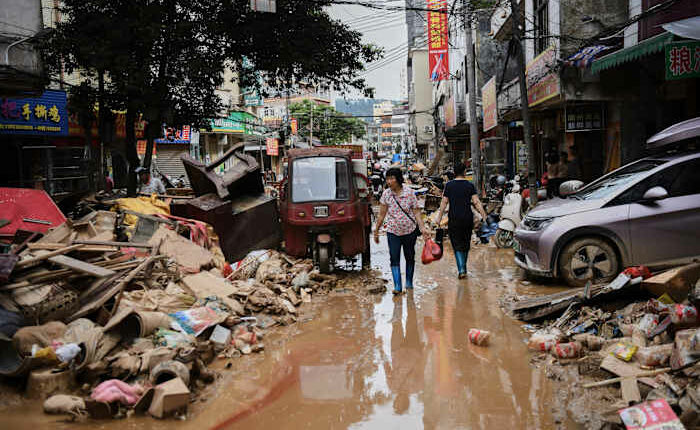Share this @internewscast.com

An outbreak of the chikungunya virus in China has led authorities to implement preventive measures such as using mosquito nets and spraying disinfectant, alongside issuing fines for those who don’t eliminate standing water and deploying drones to locate insect breeding areas.
There have been over 7,000 reported cases of the virus as of Wednesday, predominantly concentrated in the manufacturing hub of Foshan near Hong Kong, which has reported only a single case. Authorities note a slow decline in the number of new cases.
Chikungunya is transmitted by mosquitoes and results in symptoms like fever and joint pain, akin to dengue fever, with the most vulnerable being young children, the elderly, and individuals with pre-existing health conditions.
Chinese state television has aired footage of workers applying disinfectant in urban streets, residential zones, construction sites, and other areas frequented by people, targeting mosquitoes that thrive in stagnant water.
In some instances, areas were disinfected prior to individuals entering office buildings, reminiscent of China’s rigorous strategies during the COVID-19 pandemic.
Individuals failing to drain water from bottles, flower pots, or other outdoor containers might face fines up to 10,000 yuan ($1,400) or even have their electricity disconnected.
The U.S. has issued a travel advisory telling citizens not to visit China’s Guangdong province, the location of Donguan and several other business hubs, along with countries such as Bolivia and island nations in the Indian Ocean. Brazil is among the othe rcountries hit hard by the virus.
Heavy rains and high temperatures have worsened the crisis in China, which is generally common in tropical areas but came on unusually strong this year.
China has become adept at coercive measures that many nations consider over-the-top since the deadly 2003 SARS outbreak. This time, patients are being forced to stay in hospital in Foshan for a minimum of one week and authorities briefly enforced a two-week home quarantine, which was dropped since the disease cannot be transmitted between people.
Reports also have emerged of attempts to stop the virus spread with fish that eat mosquito larvae and even larger mosquitos to eat the insects carrying the virus.
Meetings have been held and protocols adopted at the national level in a sign of China’s determination to eliminate the outbreak and avoid public and international criticism.









